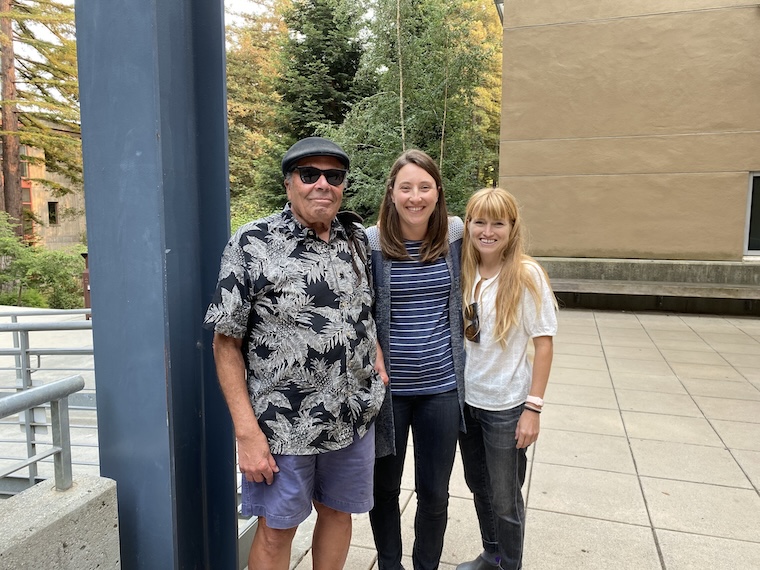Campus News
UC Santa Cruz professor honored by American Chemical Society for natural-products discovery
Phil Crews, distinguished research professor of chemistry and biochemistry, is being honored by the American Chemical Society for outstanding work in the analysis, structural elucidation, and chemical synthesis of natural products.

Phil Crews, distinguished research professor of chemistry and biochemistry, is being honored by the American Chemical Society (ACS) for outstanding work in the analysis, structural elucidation, and chemical synthesis of natural products. He will be presented with ACS’s prestigious Ernest Guenther Award at the society’s spring 2025 meeting in San Diego on March 25.
Crews researches novel, biologically active molecules from marine invertebrates and marine-derived microorganisms to discover chemotypes that are the basis for the design of new medicines to treat human diseases. Specifically, his lab researches natural marine products to understand the chemistry of tropical sponges and expand fundamental knowledge about their novel structures and bioactivity.
Crews says the search for novel active compounds incorporates elements of structure elucidation. But other dimensions of his research include addressing questions in the areas of chemical ecology, biosynthesis of natural marine products, and the relationship between secondary metabolite chemistry and taxonomy.
“I am incredibly honored to receive the 2025 American Chemical Society Ernest Gunther award. This was begun in 1949 and is at the pinnacle of annual honors given worldwide for natural products chemistry,” Crews said. “I am proud that this acknowledgment recognizes the decades of impactful marine natural products chemistry research carried out at UC Santa Cruz by our team of Ph.D. candidates, postdocs, staff, and undergraduates.”

As an advocate for diversity, Crews has spent many years encouraging undergraduates to focus on chemistry fundamentals and pursue degrees and careers in STEM fields. From 2006 to 2009, Crews led an NSF-funded program to promote undergraduate research participation in chemistry that emphasized the recruitment of diverse students. Many of them were drawn from minority-serving institutions in California and HBCUs (Historically Black Colleges and Universities) across the country.
Crews received and leads a research-training program at UC Santa Cruz funded by the National Institutes of Health called ACCESS. This program has been continuously funded from 1994 to 2025, and in part, it aims to train the next generation of underrepresented biomedical scientists by bringing them into labs on campus as summer interns who participate in biomedical-sciences research.
Crews earned his chemistry degrees within the UC system, from his bachelor’s at UCLA to his Ph.D. from UC Santa Barbara. He has also spent his entire academic career at UC Santa Cruz, arriving in 1970, when he was appointed as a fellow of Cowell College and as an assistant professor of chemistry. Fast forward to today, his lab has expanded into wine chemistry—specifically, producing guidelines for using analytical chemistry to identify grapes and wines affected by smoke taint.
In 2008, the American Association for the Advancement of Science named Crews a AAAS Fellow. Also that year, the American Society of Pharmacognosy honored Crews with its Research Achievement Award. The following year, he won UC Santa Cruz Science Division’s Outstanding Faculty Award. Then, in 2016, Crews was among five awardees chosen by the Camille and Henry Dreyfus Foundation for its Senior Scientist Mentor Program.
The Ernest Guenther Award consists of a cash prize, certificate, and medallion to be presented at the spring meeting. Past recipients include five Nobel Prize laureates: Derek H.R. Barton, Konrad E. Bloch, John Cornforth, Elias J. Corey, and Satoshi Omura.
The full list of ACS national award winners for 2025 can be found online at Chemical & Engineering News.